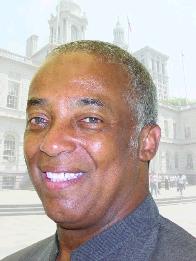The beginning and the end: Fishkin’s revamped editorial on the n-word and Huck Finn
Wednesday, January 5th, 2011The latest round of the n-word controversy started with NYC Councilman Charles Barron’s suggestion that Huckleberry Finn be banned from schools, as we discussed in our Dec. 30 report about Shelley Fisher Fishkin‘s editorial in the New York Daily News on that topic. Perhaps it will end, now, with Shelley’s revamped editorial, reconfigured to discuss the the publication of Alan Gribben‘s edition of Huckleberry Finn with NewSouth. The link is published on the Daily News‘ homepage today.
An excerpt from “Take the n-word out of ‘Huck Finn’? It’s an insult to Mark Twain – and to American history“:
“Sanitizing the language which aided and abetted white America’s denial of the humanity of black Americans from the nation’s founding doesn’t change that history. It papers it over and allows us to dodge its rawness.
Facing that history in all its offensiveness is crucial to understanding it and transcending it, and literature is uniquely positioned to help us do that. …
For to expose a racist society for what it is, you have to show racists as they are, speaking as they would speak.”
Perhaps the controversy will end now. But don’t hold your breath.
Postscript: Just got an interesting p.o.v. from Jeff Sypeck:
You know, if I were a publisher looking to defend this new, n-free version of Huck Finn, I’d send a couple of enterprising interns to the library, and to Google, to research and catalog the history of adaptations of the novel. I suspect there’s a long history of retellings–comic books, kids’ books, cartoons, etc.–that sanitize the language in much the same way. The publisher might at least have been ready to argue from precedent.
That said, I was pleased to find a 1985 interview with (the great) Roger Miller about his musical adaptation, Big River, and the necessary use of That Word. “I hate to even say it, it’s so far from my spirit,” he told the Chicago Tribune, “but we have to use it because it’s in the novel. Huck is a young boy who, being a kid, doesn’t have all those prejudiced feelings and, being a kid, he hears the grown-ups say all this stuff that he hasn’t grown into yet. So the book shows the innocence of youth and the wisdom of the black man, and it makes for a great friendship. They become like two fiddles that play together. I never got a chance to write about things like that in my music business.”
Interestingly, when Big River was staged in Utah earlier this year, the producers got permission to eliminate half of the uses of That Word, but they were proud enough of keeping the other half in the script that the director could say, “You don’t make apologies for it”!













